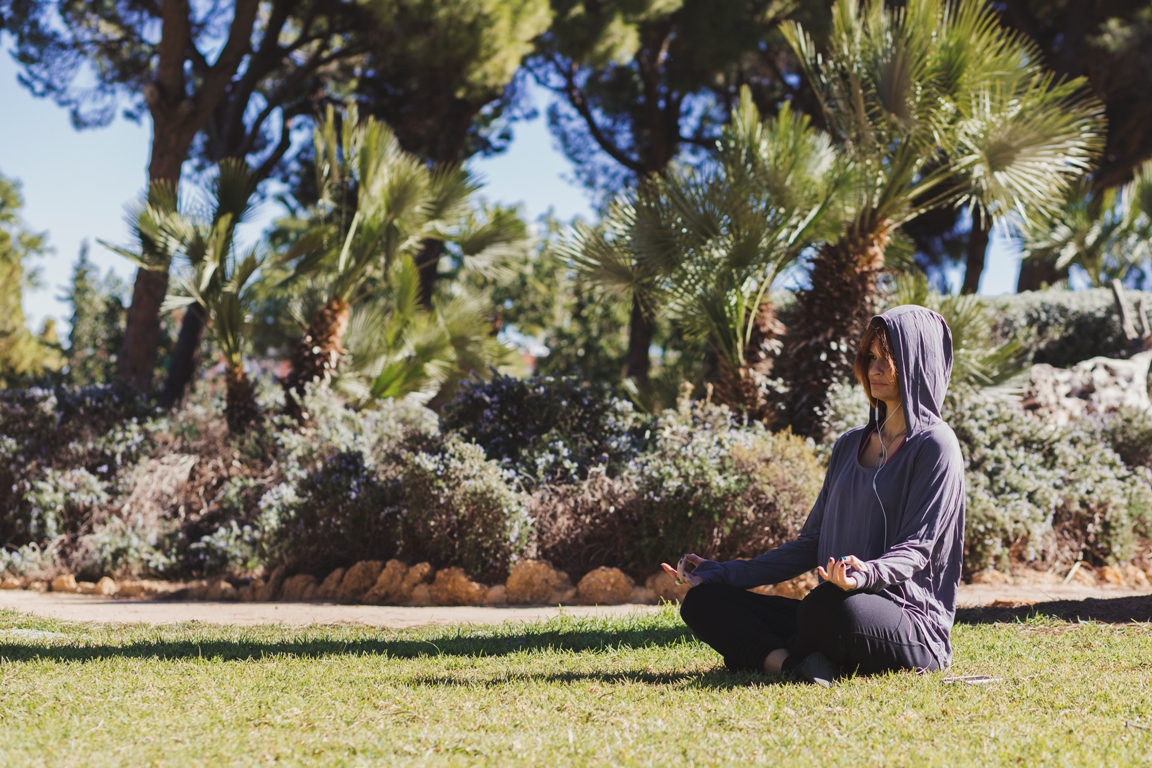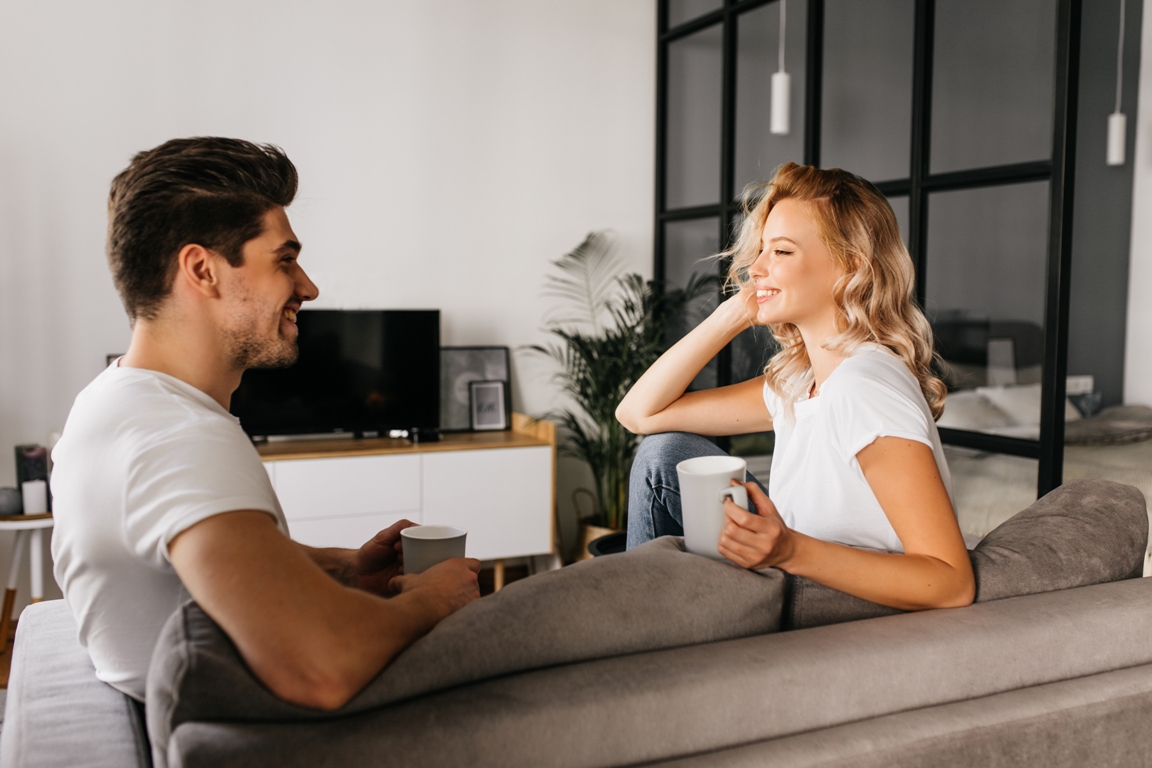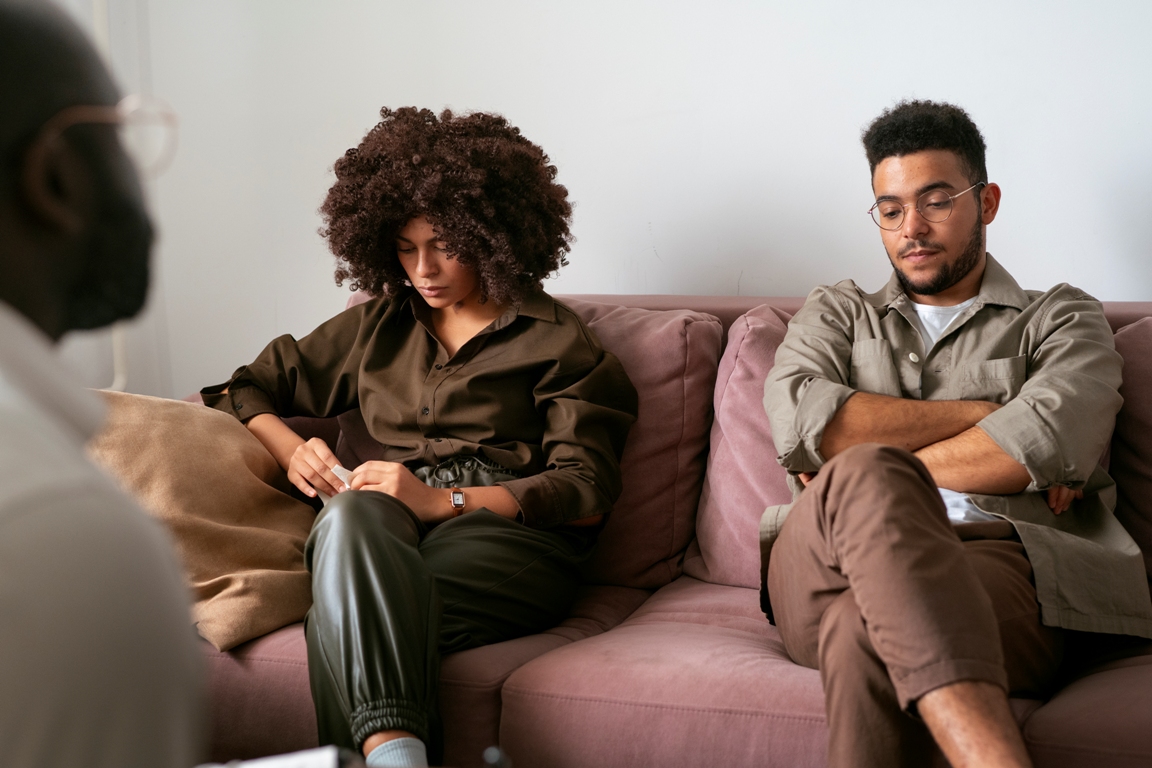Table of Contents
- Understanding Relationship Anxiety
- Self-Reflection and Awareness
- Communication in Relationships
- Building Trust and Security
- Managing Anxiety Triggers
Key Takeaways
- Understanding the root causes of relationship anxiety is essential for effective management.
- Open and honest communication with your partner can help alleviate relationship anxiety.
- Building trust and security within your relationship creates a supportive environment for both partners.
- Practicing self-care and mindfulness techniques can aid in reducing stress and anxiety.
Understanding Relationship Anxiety
Relationship anxiety is a psychological condition characterized by feelings of insecurity, fear, and uncertainty in romantic relationships. It can manifest in various ways, such as constant worrying about the status of the relationship, fear of abandonment, or excessive jealousy.
Understanding the underlying causes of relationship anxiety is the first step towards addressing this issue. Common triggers for relationship anxiety include past traumas, attachment styles, and unresolved conflicts.
Signs and Symptoms of Relationship Anxiety
Recognizing the signs and symptoms of relationship anxiety is crucial for early intervention, as it allows individuals to identify potential issues and address them proactively. Moreover, by recognizing and understanding these indicators, individuals can proactively take steps to mitigate relationship anxiety and cultivate healthier connections with their partners. Additionally, fostering open communication and trust can significantly contribute to addressing relationship anxiety and strengthening the bond between partners. Furthermore, prioritizing self-care and seeking professional guidance when needed are essential aspects of managing relationship anxiety and promoting overall well-being. Some common indicators include:
| Signs | Symptoms |
|---|---|
| Constant worrying | Restlessness and agitation |
| Jealousy and possessiveness | Difficulty concentrating |
| Fear of abandonment | Physical symptoms (e.g., rapid heartbeat, sweating) |
If you identify with any of these symptoms, it’s essential to seek support and guidance to address your relationship anxiety effectively.
Impact of Relationship Anxiety
Relationship anxiety can have significant consequences on both individuals and the overall health of the relationship. Some potential impacts include:
- Increased stress and tension between partners
- Decreased intimacy and connection
- Communication breakdowns and conflicts
- Risk of relationship dissolution
Understanding the severity of these consequences underscores the importance of actively addressing relationship anxiety.

In the next section, we’ll delve deeper into strategies for self-reflection and awareness to help you gain insights into your relationship anxiety triggers.
Self-Reflection and Awareness
Self-reflection and awareness play pivotal roles in learning how to stop relationship anxiety. By introspecting your thoughts, feelings, and behaviors, you gain invaluable insights into the root causes of your anxiety. Understanding these triggers is indeed the first crucial step towards effectively addressing relationship anxiety and ultimately fostering healthier and more resilient connections with your partner. Additionally, by recognizing and acknowledging these triggers, individuals can begin to implement targeted strategies and proactive measures, thereby promoting greater emotional well-being within the relationship.
Recognizing Personal Triggers
Identifying your personal triggers is the first step towards managing relationship anxiety effectively. Reflecting on past experiences, childhood traumas, and attachment patterns that may contribute to your anxiety is crucial. Additionally, consider exploring these aspects to gain deeper insights into your emotional triggers.
Journaling or therapy can be helpful tools for exploring your emotions and gaining clarity on your triggers.
Understanding Root Causes
Understanding the underlying causes of your relationship anxiety is crucial for developing targeted strategies for improvement. Common root causes may include:
- Past traumas or abusive relationships
- Insecurity or low self-esteem
- Fear of rejection or abandonment
By addressing these root causes, you can begin to heal and reduce the intensity of your relationship anxiety.
Techniques for Self-Reflection
There are several techniques you can utilize to enhance self-reflection and awareness, including:
- Mindfulness meditation
- Deep breathing exercises
- Journaling prompts
- Therapeutic interventions (e.g., cognitive-behavioral therapy)
Experimenting with various techniques is essential to discover what works best for you in cultivating self-awareness and effectively managing relationship anxiety. Additionally, exploring different strategies can help you develop a deeper understanding of yourself and improve your overall well-being.

Next, we’ll explore the importance of communication in relationships and how it can help alleviate relationship anxiety.
Communication in Relationships
Effective communication is essential for nurturing healthy relationships and addressing relationship anxiety. Open and honest dialogue with your partner can foster trust, understanding, and emotional intimacy.
Importance of Open Communication
Open communication is essential for stopping relationship anxiety as it lays the foundation for building trust and security within your relationship. When both partners feel comfortable expressing their thoughts, feelings, and concerns openly, it creates a supportive environment for addressing and overcoming relationship anxiety.
Practice active listening and validate your partner’s emotions to foster a sense of empathy and connection.
Strategies for Effective Communication
Here are some strategies to enhance communication and reduce relationship anxiety:
- Set aside dedicated time for meaningful conversations
- Use “I” statements to express your feelings without blaming your partner
- Avoid making assumptions and seek clarification when needed
- Practice active listening and validate your partner’s emotions
- Seek compromise and collaborate on solutions to common challenges
By prioritizing open communication, you can foster a deeper connection with your partner and reduce the impact of relationship anxiety.

In the following section, we’ll explore strategies for building trust and security within your relationship.
Building Trust and Security
Trust and security, key elements in how to stop relationship anxiety, are the cornerstones of a healthy relationship. Establishing a foundation of trust can help alleviate relationship anxiety and foster a deeper connection between partners.
Establishing Trust
Building trust requires consistency, reliability, and transparency in your actions. Be honest and reliable in your interactions with your partner, and follow through on your commitments.
Communicate openly about your expectations and boundaries, and respect your partner’s autonomy and independence.
Creating a Supportive Environment
Create a supportive environment where both partners feel valued, respected, and accepted. Celebrate each other’s achievements and provide emotional support during challenging times.
Practice empathy and compassion in your interactions, and be willing to listen and validate your partner’s feelings.
Building Intimacy and Connection
Nurturing intimacy and connection is essential for strengthening your bond and reducing relationship anxiety. Spend quality time together, engage in activities that foster closeness, and prioritize physical and emotional intimacy.
Express your love and affection regularly, and communicate openly about your needs and desires.

Next, we’ll discuss techniques for managing anxiety triggers and promoting emotional well-being in your relationship.
Managing Anxiety Triggers
Effectively managing anxiety triggers is paramount in maintaining a healthy relationship and mitigating the impact of relationship anxiety. By diligently identifying and proactively addressing these triggers, you can cultivate effective coping mechanisms and foster enhanced emotional well-being.
Identifying Common Triggers
Common triggers for relationship anxiety include:
- Fear of abandonment or rejection
- Insecurities about self-worth or attractiveness
- Past traumas or negative relationship experiences
- Communication challenges or conflicts with your partner
- External stressors such as work or family issues
By proactively recognizing these triggers, you can take the necessary steps to address them and effectively reduce their impact on your relationship.
Techniques for Coping
There are several techniques you can use to manage anxiety triggers and promote emotional well-being:
- Deep breathing exercises to reduce stress and promote relaxation
- Mindfulness meditation to cultivate present-moment awareness
- Journaling to express your thoughts and emotions in a safe space
- Seeking support from friends, family, or a therapist
- Engaging in activities that bring you joy and fulfillment
Experimenting with various techniques is crucial to ascertain which ones work best for you in managing anxiety triggers and promoting emotional well-being. Additionally, it’s important to explore different strategies to effectively address relationship anxiety and enhance overall mental health. By trying out different strategies, you can gain insights into what methods are most effective for your unique needs and circumstances.

In the next part of this guide, we’ll explore the importance of seeking professional help and practicing self-care in managing relationship anxiety.
Seeking Professional Help
Seeking professional assistance is a crucial step in addressing relationship anxiety and promoting overall well-being. Therapists and counselors offer insightful guidance, support, and tools for managing anxiety and building healthy relationships.
When to Consider Therapy
Consider seeking therapy or counseling if you experience:
- Persistent feelings of anxiety or insecurity in your relationship
- Difficulty communicating with your partner or resolving conflicts
- Past traumas or unresolved issues impacting your current relationship
- Negative patterns of thinking or behavior that contribute to relationship anxiety
Therapy can offer a safe and supportive space for individuals to explore their emotions. Additionally, it allows them to gain insights into their relationship dynamics and develop effective coping strategies.
Types of Therapy
Several types of therapy can be beneficial for addressing relationship anxiety, including:
- Cognitive-behavioral therapy (CBT) to challenge negative thought patterns and develop healthy coping skills
- Attachment-based therapy to explore past experiences and patterns of attachment
- Mindfulness-based therapy to cultivate present-moment awareness and reduce stress
- Couples therapy to improve communication, resolve conflicts, and strengthen the relationship
Critically, finding a qualified therapist or counselor who specializes in relationship issues is paramount to receiving effective support and guidance. By doing so, individuals can gain invaluable insights and practical strategies to navigate their relationship anxiety with confidence and clarity.

In the final part of this guide, we’ll discuss the importance of practicing self-care and implementing healthy habits to manage relationship anxiety effectively.
Practicing Self-Care
Practicing self-care is essential for maintaining mental and emotional well-being, especially when dealing with how to stop relationship anxiety. By prioritizing your needs and nurturing yourself, you can reduce stress, boost resilience, and enhance the overall quality of your relationship.
Importance of Self-Care
Self-care involves engaging in activities and practices that promote self-nourishment and self-restoration. Additionally, it empowers you to manage stress more effectively, thereby cultivating a positive mindset.
Remember, it’s crucial to prioritize self-care because you can’t pour from an empty cup. By taking care of yourself, you’ll be better equipped to show up fully in your relationship and support your partner more effectively.
Self-Care Practices
Here are some self-care practices to incorporate into your daily routine:
- Mindfulness meditation to calm the mind and reduce anxiety
- Regular exercise to release tension and boost mood
- Healthy eating habits to nourish your body and mind
- Quality sleep to promote rest and rejuvenation
- Engaging in hobbies and activities that bring you joy and fulfillment
Experiment with different self-care strategies to discover what works best for you. Remember, self-care is not selfish—it’s a necessity for overall well-being.
In the next part of this guide, we’ll address frequently asked questions about relationship anxiety to provide further insight and guidance.
Frequently Asked Questions (FAQs)
What are the signs of relationship anxiety?
Signs of relationship anxiety, and how to stop relationship anxiety may include constant worrying about the status of the relationship, fear of abandonment, excessive jealousy, and physical symptoms such as rapid heartbeat or sweating.
Can relationship anxiety be cured?
While relationship anxiety may not be completely cured, it can be effectively managed with the right strategies and support. Therapy, communication skills, and self-care practices can help individuals navigate and reduce relationship anxiety.
How do I talk to my partner about my relationship anxiety?
Open and honest communication is key when discussing relationship anxiety with your partner. Express your feelings and concerns in a non-confrontational manner, use “I” statements, and be receptive to your partner’s perspective.
Are there any natural remedies for relationship anxiety?
While natural remedies such as mindfulness meditation, deep breathing exercises, and herbal supplements may help alleviate symptoms of how to stop relationship anxiety, it’s important to consult with a healthcare professional before trying any new treatment.
How can I rebuild trust after experiencing relationship anxiety?
Rebuilding trust after experiencing relationship anxiety necessitates patience, understanding, and consistent effort from both partners. Moreover, open communication, mutual empathy, and genuine commitment are indispensable for the healing process. Communication, transparency, and consistency in behavior are essential for restoring trust and strengthening the relationship.
In conclusion, addressing relationship anxiety requires a holistic approach that includes self-reflection, effective communication, building trust, managing anxiety triggers, seeking professional help, and practicing self-care. By implementing these strategies, individuals can reduce the impact of relationship anxiety and foster healthier, more fulfilling relationships.








Leave a Comment